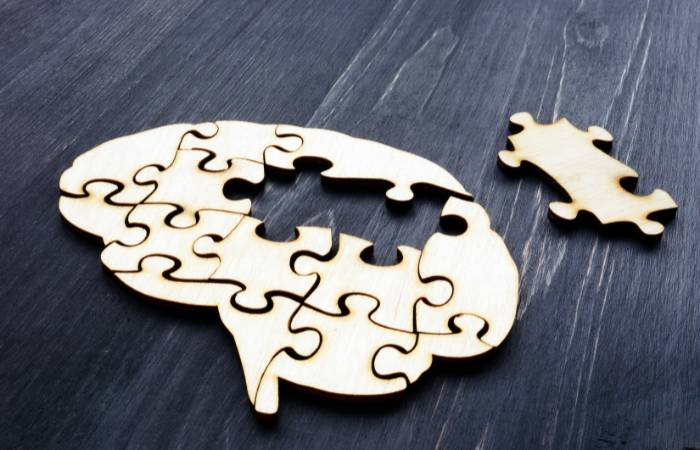In recent years, the conversation around weight loss has shifted significantly. No longer is the discussion solely focused on diets and exercise; there’s a growing acknowledgment of the role mental health plays in achieving and maintaining a healthy weight. This paradigm shift recognizes the intricate link between the mind and body, where mental health can significantly influence physical health outcomes, including weight loss.

Mental health encompasses our emotional, psychological, and social well-being. It affects how we think, feel, act, make choices, and relate to others. When it comes to weight loss, mental health can be both a driving force and a significant barrier. For instance, conditions such as anxiety and depression can lead to overeating or under-eating, affecting one’s ability to lose weight. Conversely, a positive mental attitude can motivate an individual towards healthier lifestyle choices with or without supplements for weight loss like Reduslim.
The connection between mental health and weight loss is complex and bidirectional. Mental health issues can lead to weight gain or loss, and vice versa. For example, the stress of trying to lose weight can impact one’s mental health, creating a cycle that’s difficult to break. Recognizing this, it’s crucial to approach weight loss with a holistic perspective that includes the management of mental health. This article aims to explore the intricate role of mental health in weight loss, highlighting the psychological factors at play, and offering strategies to address them effectively.
By understanding the psychological aspects of weight loss, individuals can adopt a more comprehensive approach, addressing both mental and physical health needs. This not only improves the chances of successful weight loss but also enhances overall well-being.
Understanding Mental Health and Its Impact on Weight
Defining Mental Health
Mental health is a critical component of our overall well-being, encompassing our emotional, psychological, and social welfare. It influences how we perceive the world, make decisions, handle stress, and interact with others. A state of good mental health enables individuals to realize their own abilities, cope with the normal stresses of life, work productively, and contribute to their communities. However, when our mental health is compromised, it can affect every aspect of our lives, including our physical health and, notably, our weight.
Mental Health and Weight Connection
The relationship between mental health and weight is multifaceted and profound. Mental health disorders such as depression, anxiety, and stress can significantly impact one’s eating habits, energy levels, and overall motivation to maintain a healthy lifestyle. For some, mental health challenges lead to overeating or indulging in high-calorie, low-nutrient foods as a form of self-medication or comfort. For others, these challenges can result in a loss of appetite and disinterest in food, contributing to weight loss and nutritional deficiencies.
In a world that often equates slimness with health and happiness, it’s easy to fall into the trap of viewing obesity as a personal failure or an inescapable fate. However, the truth is far more nuanced and empowering. Obesity is not a life sentence nor does it define your value or capabilities. Understanding and accepting your genetic makeup and body shape is the first step towards a healthier and more fulfilled life, irrespective of the numbers on the scale.
Eating disorders, including binge eating disorder, anorexia nervosa, and bulimia nervosa, are prime examples of how mental health directly influences weight. These disorders are characterized by extreme emotions, attitudes, and behaviors surrounding weight and food issues. They not only affect physical health but are also indicative of underlying mental health issues.
Furthermore, the impact of mental health on weight is not just about eating habits. Mental health can influence one’s energy levels, sleep patterns, and overall motivation to engage in physical activity. Poor mental health can lead to fatigue, making it challenging to maintain regular exercise, which is crucial for weight management. Additionally, certain medications used to treat mental health conditions can have side effects that contribute to weight gain, complicating the process of weight loss.
Understanding the intricate relationship between mental health and weight is the first step in addressing these challenges. It is essential to recognize that improving mental health can lead to more successful weight management and that addressing weight issues can also have a positive impact on mental health. This bidirectional approach is crucial for developing effective strategies for those seeking to manage their weight and improve their overall health.
Psychological Factors in Weight Loss
Emotional Eating and Its Consequences
One of the most significant psychological factors affecting weight loss is emotional eating. This phenomenon occurs when individuals use food as a means to manage emotions rather than to satisfy hunger. Stress, sadness, loneliness, boredom, and even happiness can lead individuals to reach for food to cope with their feelings. Emotional eating often involves consuming high-calorie, high-fat foods, which can lead to weight gain over time. Recognizing the triggers of emotional eating and developing healthier coping mechanisms are crucial steps in preventing it from sabotaging weight loss efforts.
Stress and Weight Gain
Stress plays a pivotal role in weight management, primarily through its impact on cortisol levels. Cortisol, known as the “stress hormone,” can increase appetite and cravings for unhealthy foods. Moreover, chronic stress can lead to increased fat storage, particularly in the abdominal area, due to the effects of cortisol on metabolism. Managing stress through techniques such as meditation, yoga, regular physical activity, and adequate sleep can help regulate cortisol levels and support weight loss.
Body Image and Self-Esteem
Body image and self-esteem also significantly impact weight loss efforts. A positive body image and high self-esteem can motivate individuals to take care of their bodies and pursue healthy lifestyle choices. Conversely, negative body image and low self-esteem can lead to a lack of motivation, unhealthy eating habits, and avoidance of physical activity, all of which hinder weight loss. Building a positive body image involves changing how one perceives and values their body, focusing on health and functionality rather than appearance alone. Encouraging self-compassion, challenging negative thoughts, and celebrating small achievements can improve self-esteem and support weight management.
Strategies for Addressing Mental Health in Weight Loss
Mindfulness and Mindful Eating
Mindfulness and mindful eating are powerful strategies for addressing the psychological factors influencing weight loss. Mindfulness involves being fully present and engaged in the moment, which can help individuals recognize and cope with emotional eating triggers. Mindful eating encourages paying close attention to the experience of eating, including noticing the colors, smells, textures, and flavors of food, as well as recognizing hunger and fullness cues. This approach can help reduce overeating and promote a healthier relationship with food.
Cognitive Behavioral Therapy (CBT) for Weight Loss
Cognitive Behavioral Therapy (CBT) is an effective psychological treatment that can address the underlying mental health issues related to weight. CBT helps individuals identify and change negative thought patterns and behaviors that contribute to weight gain. By addressing emotional eating, stress management, and body image issues, CBT can support individuals in developing healthier eating habits and lifestyle choices conducive to weight loss.
Stress Management Techniques
Incorporating stress management techniques into daily life is crucial for both mental health and weight loss. Practices such as deep breathing exercises, progressive muscle relaxation, meditation, and yoga can significantly reduce stress levels. Engaging in regular physical activity is also an effective stress reliever and contributes to weight loss and overall well-being.
Building a Positive Body Image
Developing a positive body image is essential for mental health and weight management. This can involve setting realistic and healthy weight loss goals, focusing on non-weight-related achievements, and practicing self-compassion. Surrounding oneself with positive influences and messages can also reinforce a healthier body image and boost self-esteem.
The Importance of Support Systems
Professional Support
Professional support can play a pivotal role in the journey of weight loss, especially when mental health is a significant factor. Mental health professionals, such as psychologists and psychiatrists, can provide therapies that address underlying emotional issues contributing to weight gain. Nutritionists and dietitians can offer personalized dietary advice that takes into account both physical and mental health needs. Personal trainers can create customized exercise plans that fit an individual’s fitness level and goals, providing motivation and accountability. Together, these professionals can form a supportive network that addresses the multifaceted aspects of weight loss, ensuring that both the mental and physical components are cared for.
Community and Social Support
In addition to professional support, community and social support are crucial for sustained weight loss and mental health improvement. Support groups, whether online or in person, provide a platform for sharing experiences, challenges, and successes, offering encouragement and understanding from peers. These groups can significantly reduce feelings of isolation and provide motivation and accountability. Family and friends also play a critical role, offering emotional support and encouragement. Engaging in social activities or exercise with loved ones can make the weight loss journey more enjoyable and sustainable.
Integrating Mental and Physical Health for Weight Loss Success
Holistic Approaches to Weight Loss
Integrating mental and physical health strategies is essential for long-term weight loss success. A holistic approach to weight loss considers the whole person, not just the physical aspect of losing weight. It includes addressing mental health issues, such as stress, anxiety, and depression, that may impede weight loss efforts. Incorporating mindfulness, stress management techniques, and seeking professional and community support can create a balanced and effective weight loss strategy. Emphasizing the importance of self-care, such as ensuring adequate sleep, hydration, and nutrition, further supports both mental and physical health.
Success Stories and Case Studies
Real-life success stories and case studies provide compelling evidence of the effectiveness of integrating mental and physical health in weight loss. Individuals who have achieved significant weight loss often cite the importance of addressing mental health issues, such as overcoming emotional eating patterns or improving self-esteem, as key factors in their success. These stories can inspire others on their weight loss journey, demonstrating that with the right strategies and support, it is possible to overcome obstacles and achieve lasting results.
Conclusion
The role of mental health in weight loss is undeniable. Understanding the psychological factors that influence weight, and integrating strategies to address these alongside physical health approaches, offers the best chance for success. By acknowledging the importance of mental health, seeking professional and community support, and adopting a holistic approach to weight loss, individuals can embark on a healthier, more sustainable journey towards their goals.
The journey of weight loss is as much a mental challenge as it is a physical one. Embracing this dual approach not only leads to better weight loss outcomes but also to improved overall well-being. Remember, the goal is not just to lose weight but to gain a healthier, happier life.
